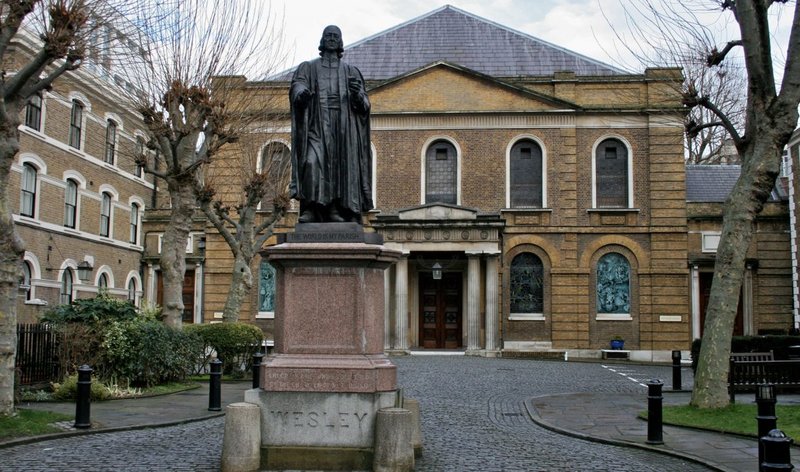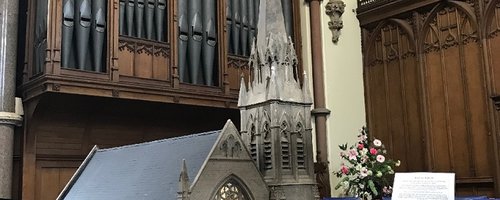The Roots of Methodism
John Wesley and Methodist pioneers
Today, there are about 75 million people worldwide who call themselves 'Methodist'. Yet this Christian denomination only began in the mid-eighteenth century in Britain, due in large part to the strong leadership, extensive travelling and organisational abilities of John Wesley, celebrated today as the most prominent 'Founder of Methodism'.
Born in 1703, John Wesley in his lifetime was well known as a pioneer and a travelling priest, he is estimated to have travelled 250,000 miles in 50 years to preach the gospel. 'Methodist' became a widely used term in the 1700s for anybody thought to be 'enthusiastic' about their religion - as we might use the term 'fundamentalist' today.
John Wesley may be the best-known of the Methodist pioneers, but he was not the first or only one. The earliest 'Methodist' preaching in Britain was in the 1730s in Wales (consider the ministry of Howell Harris). Methodism was part of an international movement, often traced to the 'Pietists' in Germany in the 1600s, which came to Britain through the Moravians - who John Wesley had met on his ill-fated visit to America.
Death of Wesley - a divided and then a united church
Following the death of John Wesley in 1791, there were many breakaway strands of Methodism away from 'Wesleyan Methodism' - these various strands of Methodism had distinct policies, personalities and priorities. Each strand of Methodism had its own charismatic leaders and particular styles of worship and organisation. In 1932 these strands united to become The Methodist Church in Britain.
The Church today, as informed by its history and propelled forward in mission
In the twenty-first century, the Methodist Church continues to be a discipleship movement of Christians, intent on mission: nurturing faith and engaged in action for social justice at home and abroad.

Heritage today
Our heritage helps us to understand how our identity has been shaped; can inspire our plans for development; and is an innovative and effective medium through which to reach out.
In our unique museums you can find out about the origins of the Methodist movement and discover how, for nearly 300 years, Methodism has been influential in challenging social injustice.
We are working hard to preserve the Church's heritage for future generations, and to facilitate physical and digital access. That means recognising and caring for many important historic sites; conserving internationally-significant archives and artefact collections; and ensuring intangible but distinctive traditions, such as our hymn-singing, are valued and promoted in contemporary ways.
Visitors of all denominations and faiths, or of none, are welcome at historic Methodist sites. You are invited to share the story of this movement from its early days in the 18th century onwards.

Methodist Heritage
Find out more about Methodist heritage around the connexion and how Methodist museums and chapels are sharing and celebrating our story for mission.

Archives & Objects Guidance
Visit this section of the website to find guidance about caring for archives & objects in Methodist chapels.